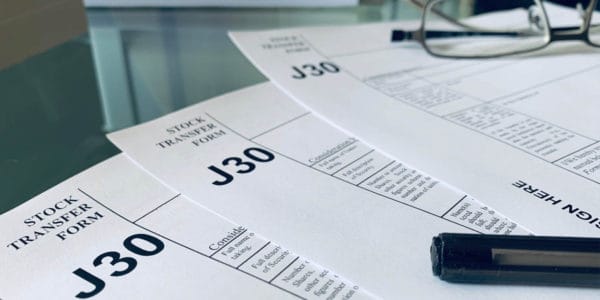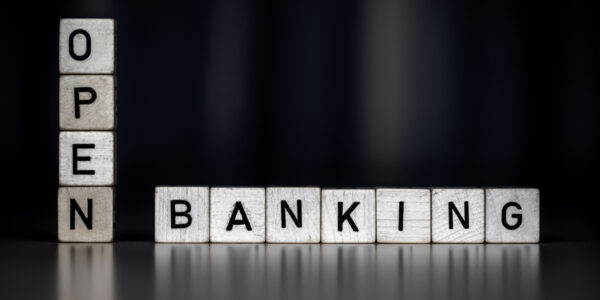Shareholders and directors are not usually liable for company debts that exceed the nominal value of their shares or the sum of any personal guarantees they have given. This is because companies limited by shares are incorporated as separate legal entities with their own identity, so they are responsible for their own actions and debts.
In turn, shareholders and directors enjoy limited liability for the actions and debts of the business, which is one of the most significant benefits of setting up a limited company.
Key takeaways
- Shareholders’ liability is limited to the nominal value of their shares, protecting personal assets in case of company failure.
- Directors face personal liability if they engage in unlawful activities or fail to act in the company’s best interest.
- Creditors’ Voluntary Arrangements can help companies manage debts, allowing for potential write-off after agreed payments.
What is the liability of company shareholders?
The liability of shareholders is limited to the ‘nominal’ value of the shares they take in the company. Typically, the nominal value of a share is set at £1, thus minimising the personal financial liability of shareholders if the company fails and can’t pay its own debts.
Example 1
- A company has 1 shareholder
- The company issues 1 share with a nominal value of £1
- The liability of the shareholder is £1
Example 2
- A company has 1 shareholder
- The company issues 10 shares with a nominal value of £1 per share
- The liability of the shareholder is £10 (10 x £1)
Example 3
- A company has 2 shareholders
- The company issues 10 shares with a nominal value of £1 per share
- Each shareholder takes 5 shares
- The liability of each shareholder is £5 (10 x £1 divided by 2)
Example 4
- A company has 10 shareholders
- The company issues 100 shares with a nominal value of £1 per share
- Each shareholder takes 10 shares
- The liability of each shareholder is £10 (100 x £1 divided by 10)
Most of the time, shareholders pay for their shares immediately. In such instances, the shareholders will not have any further liability to the business.
It is also possible, however, for shares to be taken unpaid or partly paid. In these circumstances, the shareholders are obligated to pay the outstanding nominal value of their shares when the company ‘calls up’ (i.e. demands payment of) the unpaid share capital.
This usually happens if the business becomes insolvent or is wound up, but sometimes shareholders are simply given more time to pay for their shares if immediate payment would be a barrier to investment.
Shareholders are only personally liable for company debts beyond the nominal value of their shares if:
- they provide personal guarantees on loans, leases, or other contractual agreements on behalf of the company; or
- they are also directors of the company and engage in certain actions that constitute an offence
It is common for a shareholder to also be the director of the same company, especially if the business is set up and operated by just one or two people. Whilst of great benefit, it is important to bear in mind that setting up a limited company will not provide blanket protection from certain debts and liabilities if you are appointed as a director. We discuss this in detail below.
What is the liability of company directors?
If a company is in financial difficulty and becomes insolvent or it is sued by a third party, directors and shareholders are not normally held personally liable beyond their investment or personal guarantees. However, there are general exceptions to this rule.
Whether or not they are also shareholders, directors can be held personally responsible for debts and/or liabilities of the business if they:
- pay dividends to shareholders when the company is insolvent
- continue to trade whilst having no intention of repaying company debts
- take payments from customers whilst knowing that goods or services cannot be delivered in return
- attempt to pay debts through fraudulent means
- undervalue company assets and sell them (to themselves or a third party) for less than their market value
- make preferential payments to some creditors over others
- engage in fraudulent trading, such as providing misleading or inaccurate information on finance applications
- have an overdrawn director’s loan account
- are negligent in their actions
- knowingly permit the company to act unlawfully, such as breaching employees’ contracts, disregarding health & safety or environmental legislation, or misusing sensitive data
Directors have a statutory duty to act lawfully and in good faith in the interests of the company and its shareholders. They are also expected to take every reasonable step to minimise financial loss to company creditors. Knowingly allowing a company to act unlawfully or improperly is in direct contravention of these important directors’ duties.
What are the consequences of being liable for company debts?
The consequences of being found to be liable for company-related debts or legal claims are significant.
Directors can face personal bankruptcy; have legal action taken against them by third parties, including the company, other directors or shareholders of the company, creditors, employees, or a liquidator; be disqualified from acting as a director for a period of up to 15 years; and even be subject to criminal convictions and prison sentences.
Such consequences, however, can be avoided by acting lawfully and responsibly at all times.
Can company debts be written off?
A company may be able to enter into a Creditors’ Voluntary Arrangement (CVA), which is a legally binding agreement between a company and all its creditors, for payment of all, or part, of a company’s debts over a defined period. Once the CVA payments have been paid within the agreed time frame, the remaining debt will be written off.
If a company becomes insolvent and is unable to continue trading, the directors may be able to arrange a Creditors’ Voluntary Liquidation (CVL). This would result in the company being wound up (closed), its assets being sold, and the proceeds of these asset sales being used to pay for the voluntary liquidation process and settle the company’s debts. Any remaining unsecured debt would be written off.
Please note that the information provided in this article is for general informational purposes only and does not constitute legal, tax, or professional advice. While our aim is that the content is accurate and up to date, it should not be relied upon as a substitute for tailored advice from qualified professionals. We strongly recommend that you seek independent legal and tax advice specific to your circumstances before acting on any information contained in this article. We accept no responsibility or liability for any loss or damage that may result from your reliance on the information provided in this article. Use of the information contained in this article is entirely at your own risk.














Join The Discussion